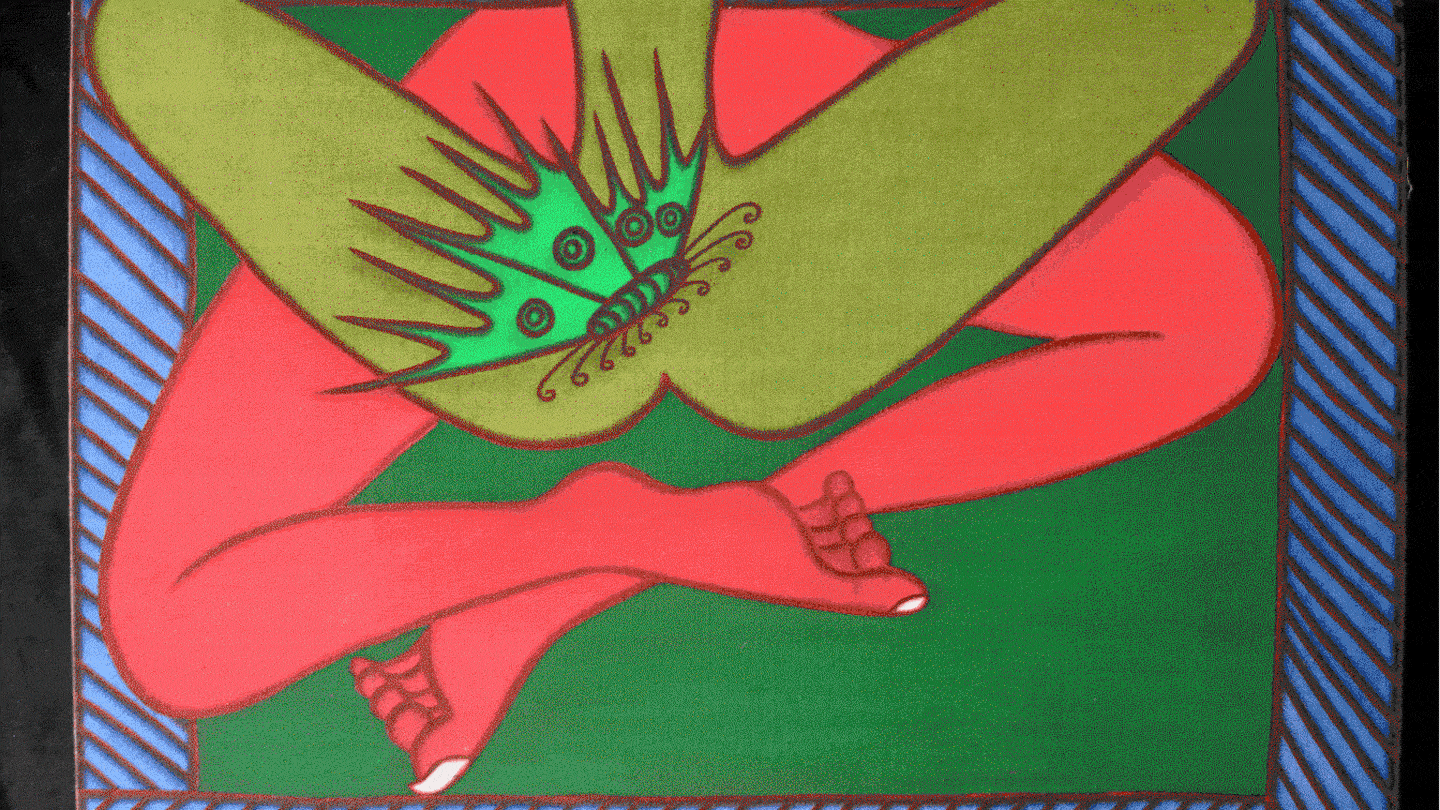Of (Un)Real Frontiers, Of (Im)Moralities and Other Transcendences
September 14–December 8, 2024
John-Foster-Dulles-Allee 10
10557 Berlin
Germany
T +49 30 397870
F +49 30 3948679
info@hkw.de
If the ‘norm’ has been inherently exclusive, is there a possibility that the ‘abnormal’ would be more accommodating? And what role can artists play in the imagination of the ‘abnormal’ as a method?
A trespasser, marginalized and excluded, does not need to ask for forgiveness for being a migrant worker, for seeking refuge, for not believing in someone else’s god or for believing in one’s own gods, for being queer, for advocating for a better future, or, to sum up, for simply being ‘abnormal’. This ‘abnormality’ must not be concerned with undoing, but rather with giving space to a multiplicity of ways of existing and co-existing side-by-side and even intertwined.
Trespassing can be defined as a transgression, an infraction grievous enough to demand an apology from the highest instance, such as in the line of the Lord’s Prayer: ‘forgive us our trespasses, as we forgive those who trespass against us’. But the semantic implications of ‘trespasses’ as a fault that alludes to being in a place where one is not allowed is a particularity of the English version of the Lord’s Prayer. The original versions of the prayer oscillated between meanings closer to ‘sin’ and ‘debt’, and various contemporary languages hold several distinct nuances for this term. The peculiar resonance of the English trespasses cannot be divorced from the intertwined historical trajectory of colonialism and capitalism over the centuries. The German language has its own eccentricity, with an uncanny etymological proximity between debt (Schulden) and guilt (Schuld) which projects a distinct reading of the line.
The exhibition thus unfolds thematically from the tensions between these different meanings and connotations: that is, the trespassing of social hierarchies, enforced expectations, glass and iron ceilings, and spaces of visibility and power, alongside exclusionary border regimes; guilt as it manifests individually and collectively in the shaping of societies while they grapple with their histories and visions of living together; as well as the diffuse power of concepts of sin as they loom over processes of trespassing gender binaries, forms of heteronormativity, and racialized regimes of exploitation.
Haus der Kulturen der Welt (HKW) invites over 50 artists, scholars, and activists from Berlin and beyond and features a vast spectrum of artworks, performances, and discussions.
Forgive Us Our Trespasses / Vergib uns unsere Schuld is about queering all that claims normativity. It is about making crooked, about going down the winding paths of life, it is about getting lost and finding oneself again, it is about trespassing as a means of resistance.
With contributions by: Ibrahim Ahmed, Esvin Alarcón Lam, Ana Alenso, Ulf Aminde, Myriam Omar Awadi, Casa Kuà, Mariana Castillo Deball, Isaac Chong Wai, Steven Cohen, Lizza May David, Victor Ehikhamenor, Jessica Ekomane, Theo Eshetu, Alfredo Esquillo Jr., FOKN Bois, Hikaru Fujii, Dani Gal, Surya Suran Gied, Patricia Gomez, María Jesús González, Olivier Guesselé-Garai, Dorothy Iannone, Leiko Ikemura, Mansour Ciss Kanakassy, Rebecca Pokua Korang, Ananias Léki Dago, Søren Lind, Antje Majewski, Shehzil Malik, Sliman Mansour, Babá Murah, I Gusti Ayu Kadek Murniasih, Nazanin Noori, Ahmet Öğüt, Tanja Ostojić, José Alejandro Restrepo, Felix de Rooy, Larissa Sansour, Ahlam Shibli, Sim Chi Yin, Nedko Solakov, Andrew Tshabangu, Linda-Philomène Tsoungui, Nasan Tur, Sandra Vásquez de la Horra
Forgive Us Our Trespasses / Vergib uns unsere Schuld opens on September 13 with a series of performances, and discussions and DJ-sets. The program includes performative activations by Steven Cohen, exhibition walks, and a kids’ disco.
More information on the opening program, visit: hkw.de/trespasses/en
Haus der Kulturen der Welt (HKW) receives institutional support by the Federal Government Commissioner for Culture and the Media.
Contact: presse@hkw.de

